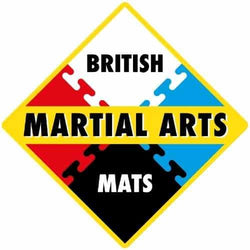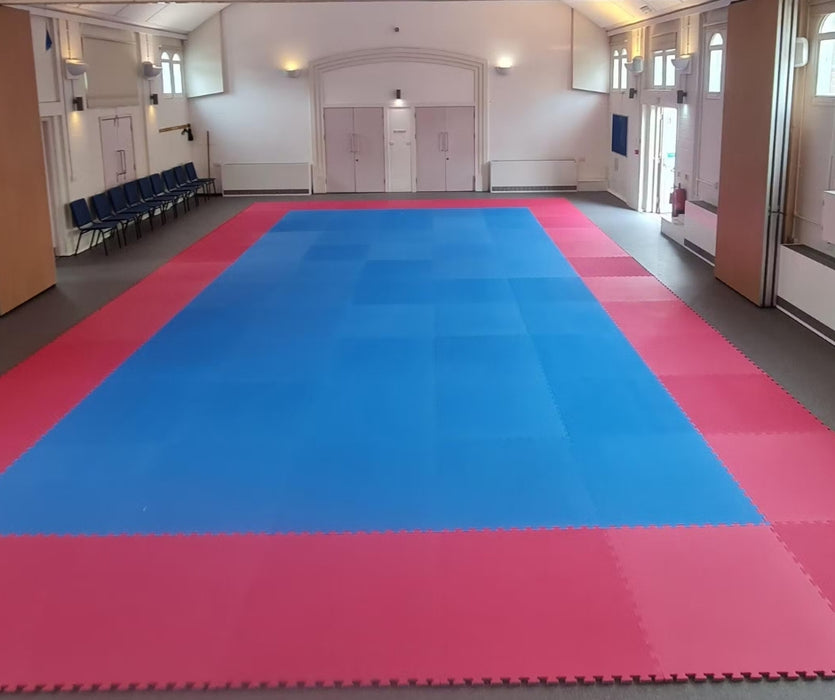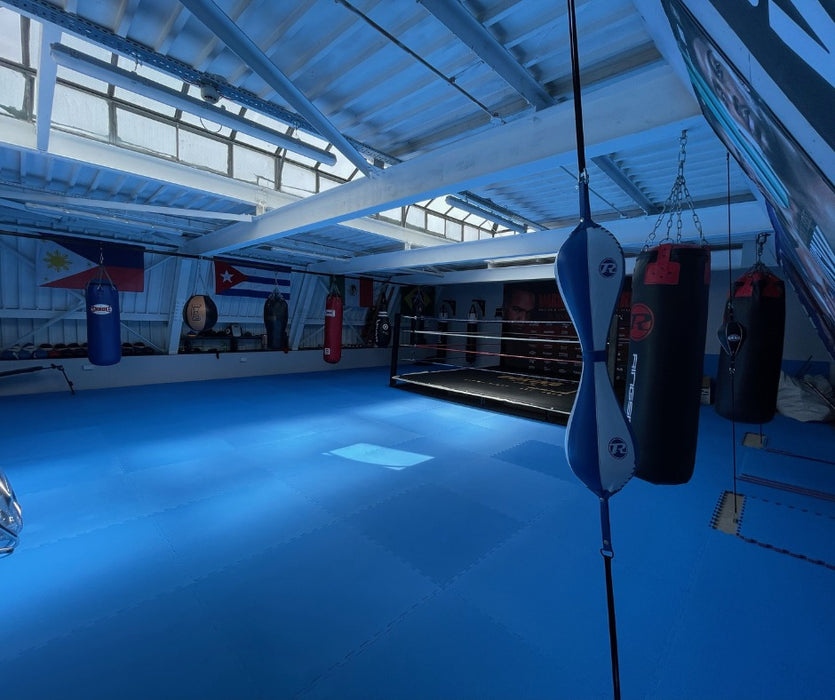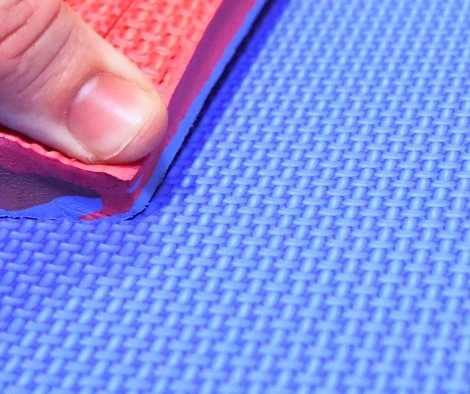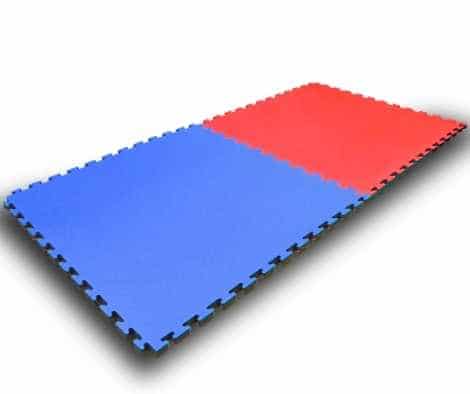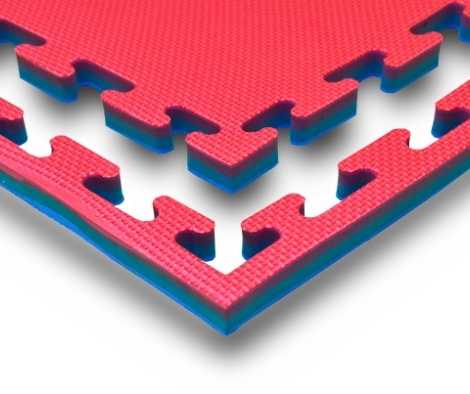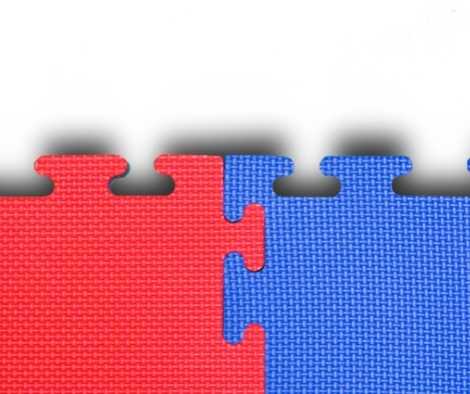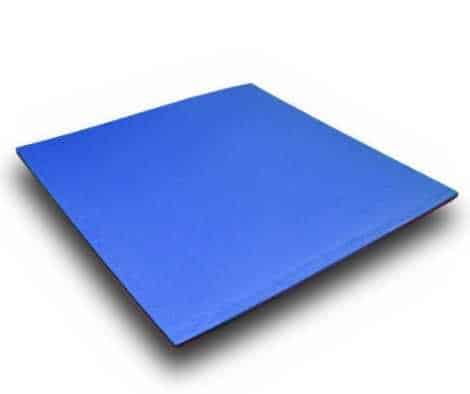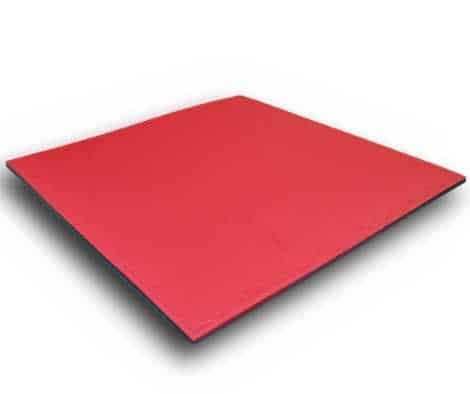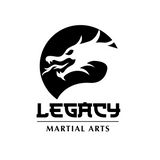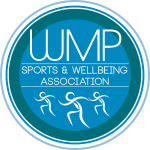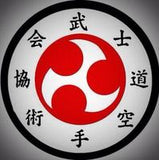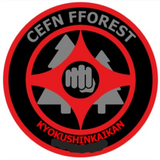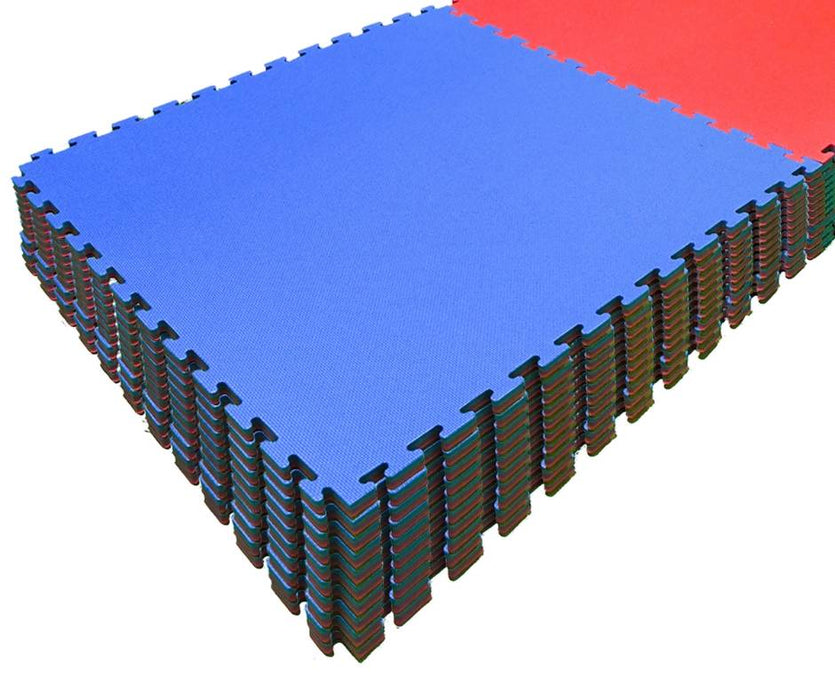
Martial Arts Tatami Jigsaw Foam Mats 20mm 1m x 1m 80kg/cbm Red Blue Karate

✔️ FREE SHIPPING ON THIS PRODUCT
✔️ Over 40,000 units sold
✔️ Bulk Order Discount Codes Auto-added to cart
✔️ REACH TESTED
✔️ CE Approved
✔️ Same day dispatch
✔️ 4 Edging Strips Included
✔️ Anti Bacterial
✔️ Reversible
Confused? Call Glenn on 075 14879039

30 Day Easy Returns

Satisfaction Guaranteed

3 Business Day Delivery

Chat With Us
Online chat with a real human 7am-7pm.

Family Service
Traditional 5 Star Service from a family run business.
Buy From Experts
Our Blackbelts will help you find the right mat.
FOAM MATS


Foam Mat Applications
1. Exercise or Fitness Mats
These are used for workouts, yoga, Pilates, and other exercise routines. They provide a comfortable, cushioned surface for floor exercises, reducing the impact on joints and minimizing discomfort on hard floors.
2. Play Mats for Children
Interlocking foam play mats offer a soft, safe surface for children to play on. They often come in bright colors or with educational patterns and are used in homes, daycares, and play areas to provide a protective environment for children.
3. Interlocking Foam Floor Tiles
Interlocking tiles are versatile foam mats that can cover larger areas. They are used in gyms, workshops, garages, and playrooms to create a durable, cushioned flooring surface. These tiles can be easily assembled and disassembled for quick setup and storage.
4. Martial Arts Mats
Specifically designed for martial arts training, these mats provide the necessary cushioning for safety while practicing throws, falls, and ground work. They are used in dojos, martial arts studios, and at home for personal practice.
5. Puzzle Mats
Similar to interlocking interlocking foam floor tiles, puzzle mats are often used in kids' play areas but can also serve as exercise mats. They are called puzzle mats due to their puzzle piece-like edges that fit together.
6. Camping Mats
Foam camping mats are used as a lightweight, portable option to provide insulation and cushioning from the ground while sleeping outdoors. Soft portable and reversible these foam mats are perfect for camping flooring.
7. Kitchen Mats or Anti-Fatigue Mats
These are designed to provide cushioning and support for people who stand for long periods, such as when cooking or working at a standing desk. They help reduce fatigue and discomfort.
What is the difference between sponge foam and EVA foam?
Sponge foam and EVA foam are both widely used materials in various industries, including sports equipment, packaging, footwear, and toys, due to their cushioning and insulating properties. However, they have distinct characteristics and are made from different materials, making them suitable for various applications. Here's a breakdown of the differences:
Sponge Foam
- Material: Sponge foam, often referred to as open-cell foam, is made from polyurethane or other plastic polymers. The "open-cell" structure means that the cells or bubbles within the foam are interconnected, creating a soft, flexible, and breathable material.
-
Properties:
- Breathability: Due to its open-cell structure, sponge foam allows air and moisture to pass through, making it breathable.
- Softness: It is generally softer and more flexible than EVA foam, providing excellent cushioning and comfort.
- Absorption: Sponge foam can absorb liquids and is often used in products like sponges for cleaning and applicators in cosmetics.
- Applications: Because of its softness and absorbency, sponge foam is commonly used in furniture cushions, bedding, sponges, cleaning products, and some types of packaging that require a gentle touch. In a high density form and covered with waterproof vinyl with high grip latex base is the Judo gym mats.
EVA Foam
- Material: EVA foam, or Ethylene-Vinyl Acetate foam, is a closed-cell foam known for its rubber-like softness and flexibility. The "closed-cell" structure means that each cell in the foam is a sealed unit, which improves its moisture resistance and durability.
-
Properties:
- Water Resistance: The closed-cell structure makes EVA foam resistant to moisture and water, unlike sponge foam.
- Durability: EVA foam is more durable and resistant to UV radiation and chemicals than sponge foam. It also has a higher tensile strength.
- Insulation: Offers good thermal and acoustic insulation properties.
- Applications: EVA foam is used in a wide range of products, including sports equipment (e.g., kickboards, martial arts mats), footwear (soles and flip-flops), toys, and packaging for sensitive equipment. It's also used in crafts and cosplay for its ease of cutting, shaping, and gluing.
Key Differences
- Cell Structure: Sponge foam is open-cell, making it breathable and absorbent, whereas EVA foam is closed-cell, providing water resistance and durability.
- Material Composition: Sponge foam is typically made from polyurethane, while EVA foam is made from Ethylene-Vinyl Acetate copolymer.
- Applications: The choice between sponge foam and EVA foam depends on the specific requirements of the application, such as the need for moisture resistance, durability, flexibility, or absorbency.
In summary, while both sponge foam and EVA foam offer cushioning and insulation, their distinct properties make them suitable for different uses. EVA foam's durability and moisture resistance make it ideal for outdoor and sports applications, while sponge foam's softness and absorbency suit indoor, comfort, and cleaning applications.2
Specification
Labelled Grading Age: Ages 5 and up
Age Group Applied in Testing: Ages 3 and up
Tests Passed:
(1) EN 71-1: 2014+A1: 2018: Mechanical and Physical Properties
(2) CE EN71-2:2020 Flammability Standards
(3) EN 71-3:2013+A1:2014: Migration of certain elements
